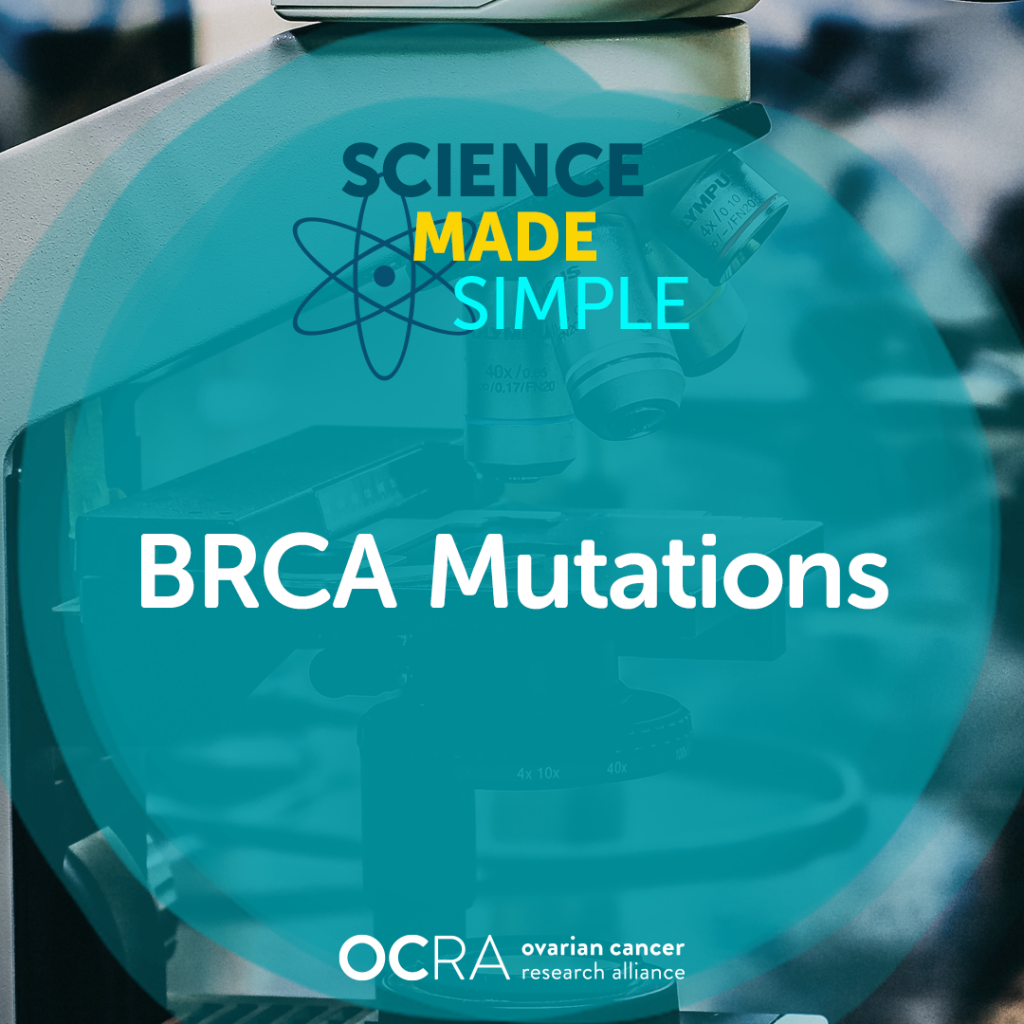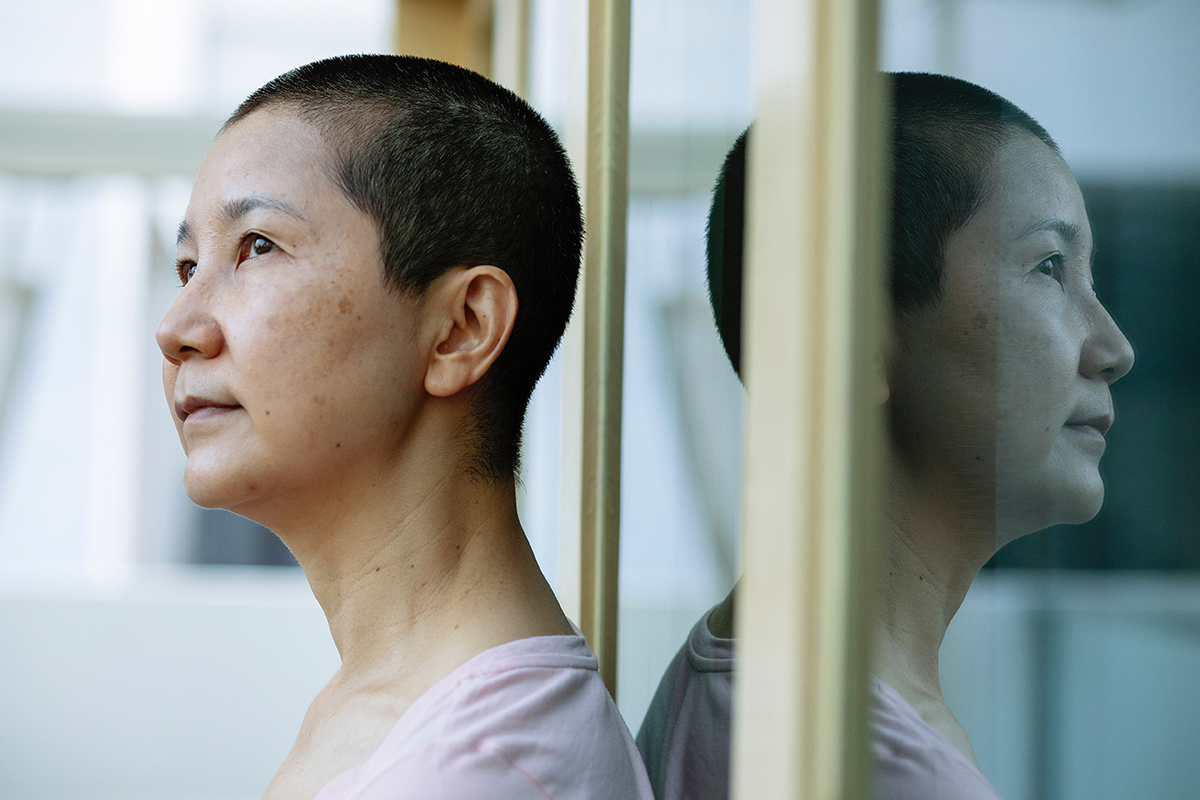
We are all made up of genes. They are the building blocks of what make us human, and scientists are discovering new functions of genes every day.
Some genes determine hair color or eye color. Some even determine whether we can make that clover shape with our tongue (truly a miracle of nature). And some control the ways in which our body fights off diseases.
The BRCA gene is one such gene. (Or, two genes actually – BRCA1 and BRCA2.) The name “BRCA” stands for “BReast CAncer gene.” These genes produce a tumor suppressor protein that essentially works to fix damaged DNA. In other words, they clean up some of the messes or mistakes the cells in our bodies might make.
Does everyone have the BRCA gene?
You may hear people say “Oh, I have the BRCA gene” in reference to their susceptibility to being diagnosed with breast or ovarian cancer. We all have the BRCA genes. (It’s like someone with a limp saying, “I have a knee,” when what they really mean is “I have a bum knee.”)
It’s not the BRCA genes themselves that lead to a greater risk of ovarian or breast cancer (or even some other types of cancer.) It’s a harmful mutation of one or both of those genes, which means that those genes don’t do their job of repairing the damaged DNA that can then lead to breast or ovarian cancer (or other types of cancer).
This BRCA gene mutation is inherited, meaning that if either parent has the mutation, there is a 50% chance the child will get that mutation as well. And it only takes one inherited copy of the gene to cause that mutation. (So, you could get a normal BRCA gene from your mother and a mutated BRCA gene passed from your father and you will have the BRCA mutation.) The good news is that BRCA genetic mutations cannot skip a generation—so if you know your biological parents’ status, you should know yours.
What does having a BRCA mutation mean for ovarian cancer?
A woman’s risk of developing breast and/or ovarian cancer in her lifetime is greatly increased with a mutation of the BRCA1 or BRCA2 gene. About 1.3% of women in the general population will develop ovarian cancer sometime during their lives. By contrast, it is estimated that about 44% of women who inherit a harmful BRCA1 mutation and about 17% of women who inherit a harmful BRCA2 mutation will develop ovarian cancer by the age of 80.
Are genetic tests for BRCA mutations available?
There are ways to determine if you have a harmful BRCA gene mutation, either through a saliva or blood test. The DNA sample is sent to a lab and it can take a month for results to come back.
Results can fall into three categories: positive result, negative result, ambiguous or uncertain result. A genetic counselor can help you understand these results and what it means for you and your family.
You can also find answers to some frequently asked questions about BRCA:
What treatments are available for ovarian cancer caused by BRCA gene mutations?
As of July 2020, the FDA has approved three drugs for treatment of BRCA-related ovarian cancers: olaparib (Lynparza), rucaparib (Rubraca) and niraparib (Zejula) are all approved for certain people with BRCA-related ovarian cancers. Talk to your doctor to learn more about if these treatments are right for you.
Should I be tested for BRCA mutations?
Guidelines from the Society of Gynecologic Oncology state that everyone diagnosed with ovarian cancer should undergo genetic testing. If you have not been diagnosed with ovarian cancer, talk to a genetic counselor to determine if genetic testing is advisable.
Can I be BRCA mutation negative, even with a family history of ovarian cancer?
Yes, it is possible to be negative for a BRCA mutation even if ovarian cancer runs in your family.
What research is being done to explore BRCA gene mutations and ovarian cancer?
Scientists are very interested in learning more about the BRCA genes and the impact of their mutations. Each new breakthrough in this area opens up possibilities for new treatments that can help people with BRCA-related cancers. OCRA has funded several research projects exploring BRCA mutations; most recently, Dr. Morozov Yaroslav, Dr. John Krais, and Dr. Alberto Ciccia have investigated this promising research area.
Where can I learn more about BRCA genes and BRCA mutations?
Learn about BRCA mutations as a risk factor for ovarian cancer, see breakthroughs over the years, and read how BRCA discoveries have changed the field of ovarian cancer.


